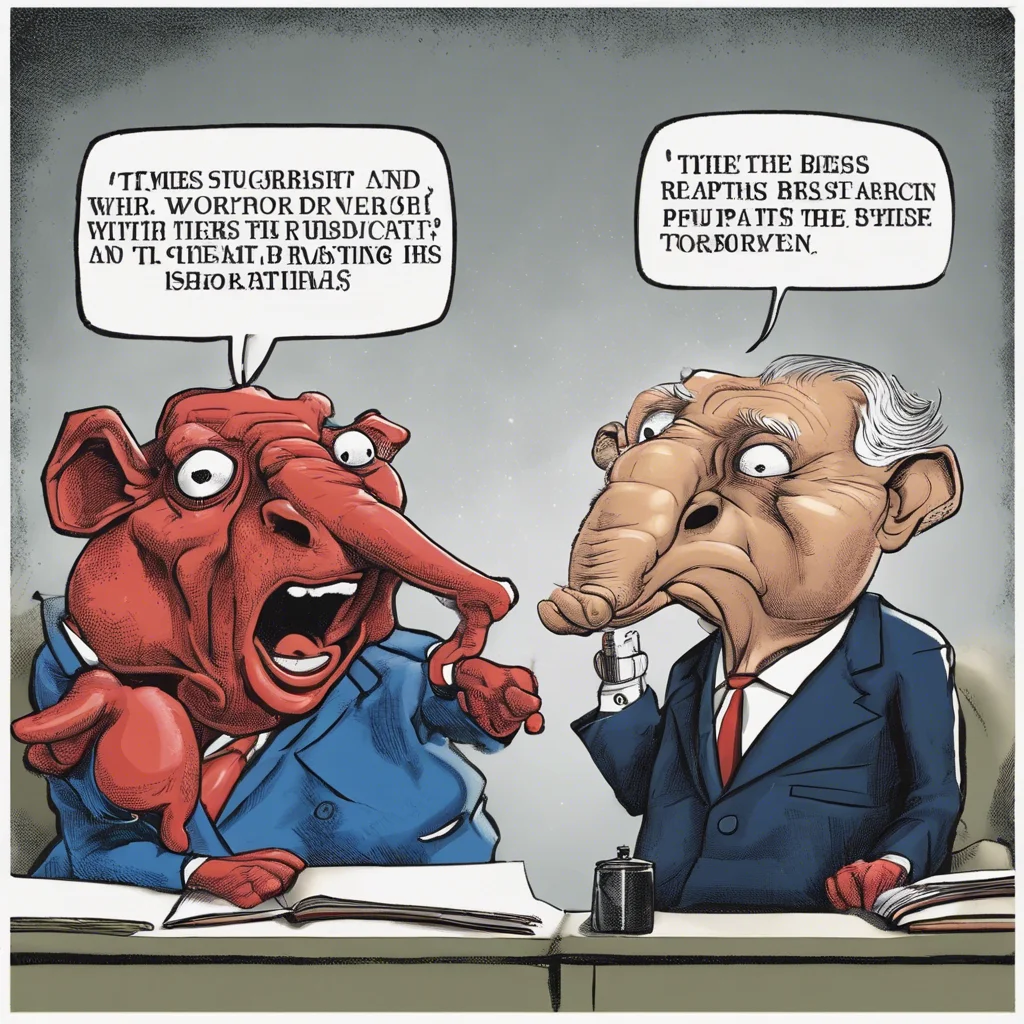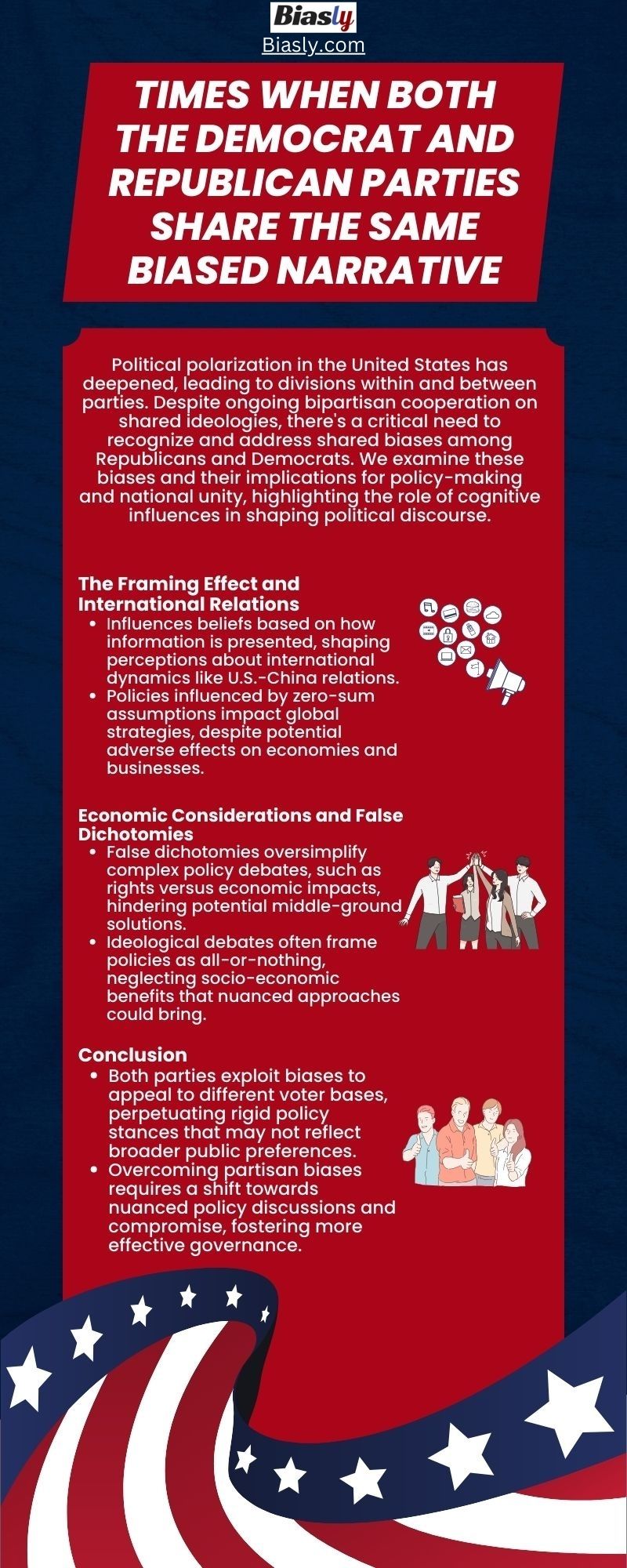
Polarization may be one of the most political phenomena in the United States today. Besides entrenched disagreement between the two primary parties, a variety of intraparty divisions further shadows the staggering stand-off on almost every important issue. Despite these difficulties, the government still functions, suggesting that bipartisan cooperation still has some shared ideologies. However, less effort is devoted to explicating shared assumptions and biases adopted by both the primary parties. This article tackles this negligence in the political discourse by diverting public attention to biases shared by the Republicans and Democrats.
The Framing Effect and International Diplomacy
The framing effect is a cognitive bias in which people formulate certain beliefs not based on evidence but on how the information is presented. As a result, we might project our underlying beliefs as if the assertion is factual. For example, we might hear reports about China’s rising military power right after receiving inflation reports about the US economy. We might also receive reports about China’s troubled stock market after a positive report on their domestic crime rate. If you have a prior belief that the international community is a zero-sum game, you would probably support policies that adopt this assumption, despite being biased.
Though it seems like America’s toughening stance on China is one that most Americans can agree upon, this stance is worth examining further. The US administration holds that it is not in America’s best interests to witness a stronger China in the long term, and a possible threat of an invasion of Taiwan is looming. In this case, the price the US is paying for a tense relationship in other areas like trade with China is deemed necessary for long-term benefit. This rationale would further license policies that may bring adverse effects including shocks to multinational businesses or the financial sectors of both countries. So a better question might be how can we better negotiate to provide a mutually beneficial relationship with China including our ethical, economic, and peace-driven considerations to the table.
The Economic Side of Rights and False Dichotomy
A false dichotomy refers to the kind of belief when people think of two things incompatible when there is room for a middle ground. Different values and policies could create tension, but a crash or collision can be avoidable. This kind of thinking arises when citizens interpret certain policy preferences absolutely. For example, we might interpret rights and freedoms in a non-negotiable way.
As established by the first amendment, religious freedom without any state intervention is one of the most fundamental rights of American citizens. Both parties hold different platforms for appropriate public policy over religious practices, but all pivot around a rights-based language. People are thus used to talking about policies they prefer in an absolute fashion. As a result, the right to freely hire or not hire by racial or sexual attributes can go head to head against the right to enjoy substantial equal opportunity. A similar stand-off of normative disagreement easily expands to the legalization of non-medical abortion, gay marriage, and freedom of speech. It is as if the policies must go one way or another, with no middle ground and compromises acceptable.
What is less emphasized is the economic impact of various activities involved here. It has been pointed out, for example, that a stable local religious community significantly enhances its economic prospect. Generalizing this logic to another context, we might find that seemingly endless ideological debate on the boundary of liberal tolerance and religious affiliation could benefit from a socio-economic perspective. In other words, an ideological debate might create a false dichotomy that shadows a bargaining game of numbers. A more tolerant employment policy and production of sexual and racial minorities can invite rich revenues from consumable product lines and nourish a cluster of ideologically motivated customers. By the same token, a more conservative line of ideological affiliation can also create its own set of industries. Sellers and buyers in these industries are divided by different products and services, thus creating distinct electoral strongholds.
Conclusion
This article explores common biases inherited by both parties in their seemingly head-to-head narratives over certain policies. More often than not, the two parties are just two heads of the same snake, optimizing their electoral prospect by lobbying different sectors of the electorate. In particular, we have discussed how policies from both parties can strike a false dichotomy, convincing people from both sides that certain policy platforms the parties provide are non-negotiable within an absolute framework. Often, these policies are more radical than a median citizen would deem ideal. Many politicians might find themselves trapped in entrenching debates over incompatible policy preferences by partisan biases, which can only change if both parties begin seriously learning about and applying fixes to such cognitive biases in their politics, and possibly even personal lives.























